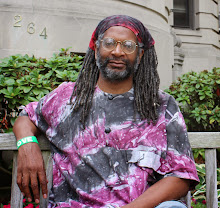Indigeny & Energetics Introduction 01 (originally posted Nov. 23, 2008)
This work around indigeny and energetics seeks to place indigenous thought and practice, including naturo-spiritual dynamics (nature and human spiritual development have always been partners in history), in its correct historical perspective, to empower indigenous people and others through a change in conceptual outlook and an opportunity to move humanity forward in time with the correct vision and intellectual and spiritual motives. Indigeny and energetics seeks to provide a place for the organization of thought and work that has been put into a tailspin by the forces and ideas of modernity/capitalism and the machine/industrial age, which the framework of indigeny puts into a correct perspective as a sub-cultural, functionally-limited and necessarily temporary socio-political dynamic.
Indigeny and energetics concepts are strengthened by the substantial and growing awareness of the relationship of capitalism/consumerism/ materialism to the continuing destruction of the natural environment, the home and sustenance of humanity on both the physical and spiritual planes. Indigeny has existed for thousands, upon millions of years - modernity for about 250 to 500 years at most in its infancy, adolescence and adulthood. Modernity is aging quickly, becoming outmoded, fraught with irreconcilable ideological and material conflicts. These conflicts cannot be mitigated within the offending system due to the nature of its shortcomings.
This blog is offered as a repository of the initial literary developments and writings of indigeny and energetics (concepts developed by Ukumbwa Sauti, M.Ed.) in particular and as a place for discourse on the issues of sustainability, environmentalism, spirituality, religion, media, modern culture and technology in general.
Ukumbwa Sauti, M.Ed. is informed and guided by the works of Malidoma Some’, Alwyn Thomas, David Sprague, East Coast Village, Vine Deloria, Jr., Winona LaDuke, Jerry Mander, John Perkins, Kwame Nkrumah, Seku Ture, Malcolm X/El Hajj Malik El Shabazz, Ted Andrews, Bernadette McDonald/Douglas Jehl, David Helvarg, George Gerbner, Ben Bagdikian, Don Jorge Tamayo, St. Suzan Baltozer and the millions upon millions of indigenous people who have contributed so beautifully to the great body of knowledge and work and life and living experience that we know as human development.
Subscribe to:
Comments (Atom)


No comments:
Post a Comment